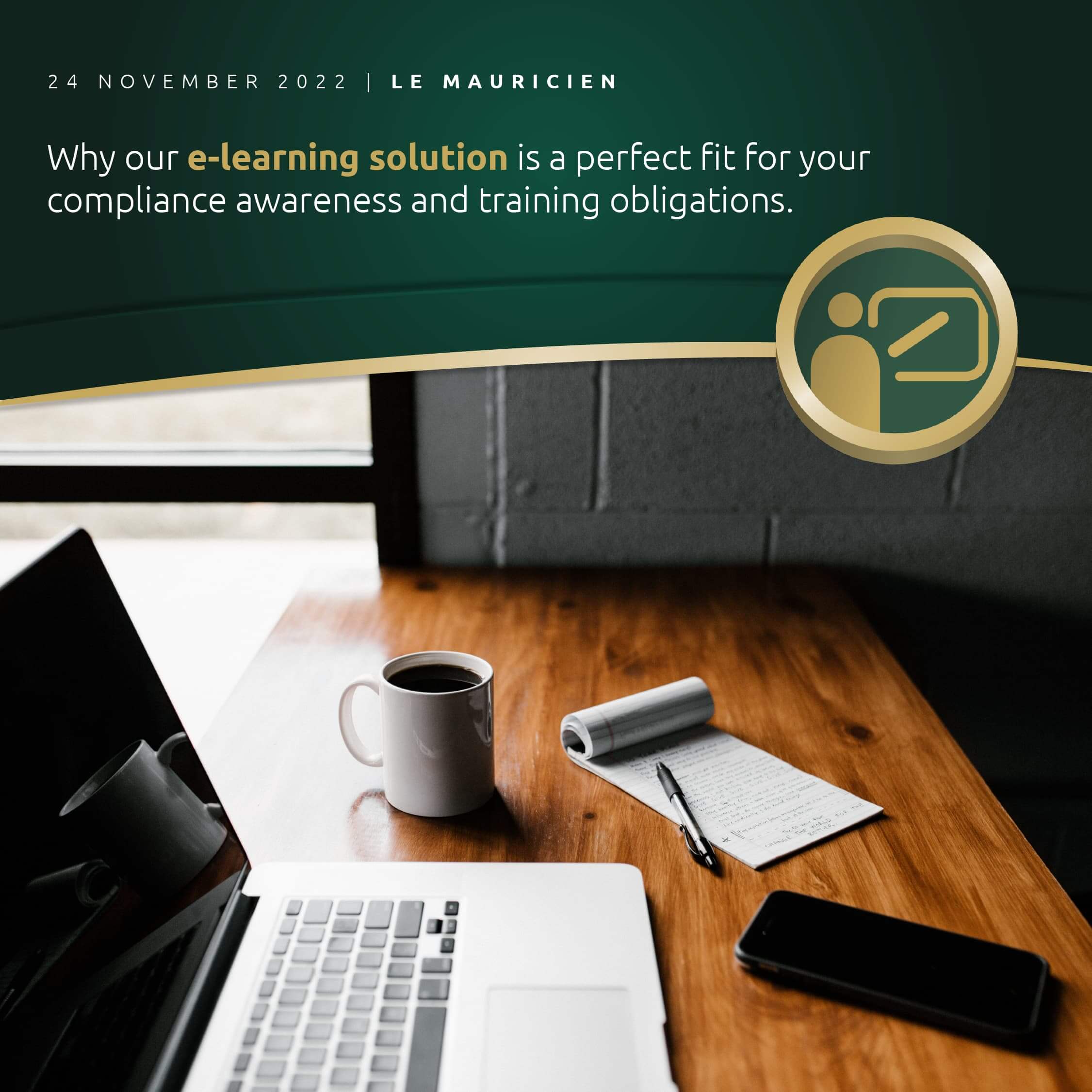EN | AR
- Home
- About Us
- Abler Services
- Blog, News & Resources
- Contact Us

2022-11-30 -
Administrator -
Business
Money laundering (ML) and terrorism financing (TF) can affect any organisation. The effects of ML/TF are severe and extensive. It can create global and local impacts on businesses, economies and societies.
One of the requirements of Anti Money Laundering/Countering the Financing of Terrorism (AML/CFT) Regulators is for firms to provide on-going AML/CFT training to their directors, officers, and employees as it is a crucial component in the management of ML/TF risk. Simply stated, everyone is exposed to ML/TF threats, and everyone needs to be cognisant of the risks. The directors, officers and employees are the most effective defence against ML/TF as they can prevent money launderers from abusing the products or services provided by the firm through enhancing awareness and enforcing an effective risk governance framework. How Mauritius is ensuring AML/CFT awareness As a reputed International Financial Centre (IFC), Mauritius has ensured that its regulatory framework incorporates the need for ongoing AML/CFT training for all stakeholders. In this context, the Financial Intelligence and Anti-Money Laundering (FIAML) Regulations 2018 state that the reporting person shall implement “an on-going training programme for its directors, officers and employees to maintain awareness of the laws and regulations relating to money laundering and terrorism financing”. This requirement has been further emphasised by the respective AML/CFT Regulators, namely the Financial Services Commission, the Bank of Mauritius, and the Financial Intelligence Unit, amongst others. As an independent consultancy firm specialised in AML/CFT compliance, Abler firmly believes that making AML/CFT training accessible to all is an important criterion towards ensuring widespread dissemination of AML/CFT awareness – and that this is best done through the medium of e-learning. Accordingly, we offer a wide range of e-learning courses, including AML/CFT, Sanctions Awareness, AML Practical Examples, AML Environmental Crime, amongst others. Significantly, our courses address a wide variety of topics that are pertinent to a broad cross-section of financial institutions (FIs) opera-ting in sectors such as banking and non-banking financial services businesses, professionals working for the Regulators, designated non-financial business professionals (DNFBPs) such as jewellers, real estate, lawyers, notaries, accountants, auditors, tax practitioners as well as entrepreneurs and other stakeholders, such as those operating under particular third-party compliance arrangements, providing ancillary services to such FIs and DNFBPs that are subject to AML/CFT compliance obligations.
Why E-Learning?
In today’s knowledge-driven economy, continuing professional development (CPD) has become more important than ever before. E-learning is the ideal solution to incorporating learning within the workplace without disrupting work schedules – and is fast emerging as a flexible and cost-effective mode of disseminating best practices across all levels of an organisation.
The benefits offered by e-learning include:
Flexibility: It is flexible as the process of e-learning allows all employees to learn at their own pace and undertake training as an ongoing process.
Cost effective: The remote training methodology means that staff members can complete the training in their own time at their own convenience and the firm can avoid the added expenses of paying for a large venue that suits all trainees.
Practical: Enrolling in online courses means that the firm can quickly accommodate training needs without needless administrative hassle to engage providers to deli-ver trainings and trainings are delivered in a timely manner to employees.
Ease of access: Since e-learning is online, employees can access it with ease and go through the course several times to fully absorb the information. The learning experience is much more effective and enjoyable.
Convenient: It allows business as usual, as it can be rolled out to all employees without undue disruption to the business and to suit everyone’s work schedules and work breaks.
Why turn to Abler for AML/CFT E-Learning
At Abler, our e-learning allows accessibility of AML/CFT training to the widest range of participants across various sectors. We have invested accordingly in a best-in-class e-learning pro-grammes to allow your organisation to stay abreast with the latest developments in the compliance arena suited for your sec-tor and more.
The main features and benefits of our e-learning programmes are as follows:
CPD structured trainings: Our e-learning allows you to earn CPD points and enables Directors, Compliance Officers, MLROs, DMLROs and employees to meet their legal training requirements. A certificate is issued at the end of the module to ensure an easy record of their CPD achievements.
Best-in-class modules: We have ensured tie-ups with the best experts in the compliance e-learning field to in turn offer you the best modules.
Comprehensive suite of courses: Our courses will allow you to maintain a working knowledge of the laws, rules and regulations governing your sector as well as emerging areas, such as AML/CFT for the environment, supplemented with the latest case studies.
Reporting: We can pro-vide course reporting to your Compliance/Human Resources staff and/or to Regulators, as the case may be.
Interactive: Our e-learning comes supplemented with the right visuals to aid fast learning.
User friendly: Anyone can use our modules and learn from them as the course content is easy to understand and progress can be easily tracked and resumed at command. We strike the right balance between bulky slides, skeletal information, and audio-visual content.
Known to regulators: Our courses are known to the relevant regulators and authorities and are reviewed in a timely manner to meet current laws, rules, and regulations.
Reinforcing a culture of compliance
Abler provides AML/CFT compliance courses which can benefit all firms that are keen to adhere to their legal and regulatory obligations and inculcate a compliance culture within their organisations. Indeed, with Mauritius having achieved compliance with all 40 of the Financial Action Task Force’s (FATF’s) Recommendations, the onus is on us to ensure that the Mauritius IFC continues to meet all training and capacity building requirements towards deter-ring ML/TF threats and maintaining its reputation as a leading regional financial services hub.